I recently joined an online Christian mommies group and came across a discussion debating the merits of sending your kids to a secular/public school vs a private Christian school or homeschooling.
Having attending public schools all my life (well, technically the university I attended is a private institution but it does not have a religious affiliation), I was shocked at how many Christian moms were against public schools.
J and I have had many discussions about sending our children to private vs public schools. J has attended private schools all his life (he even attended boarding school in England) and thinks that private schools offer the best education. I see no problem with public schools just as long as the area we’re living in has a good school district. We are still undecided on a final answer, but luckily we have some time before a decision needs to be made.
However, the topic on hand isn’t a “private vs public” discussion. It is a “secular vs Christian” one.

The argument for sending your kids to private Christian schools, or even homeschooling them, is so protect them from outside influences that might derail their faith. One mom even likened sending her daughter to public schools to “throwing her into a lion’s den.” Many Christian mothers feel that their children would be exposed to non-Christian ideas, experiences and influences at public schools, and that children should not have to defend their faith at such young ages.
Most also agree that discussion and exposure to other beliefs and lifestyles should be introduced by the parents under controlled environments, and guided by them in accordance with what each individual child is mature enough to process at any given point, not by the child’s peers or teachers.
My own experience has obviously shaped my opinions regarding this discussion, because I strongly disagree.
I attended public schools all my life and I am very grateful for it. Since I was exposed to various religions, ideas, and even the “bads” of the world starting at an early age, I am now even more confident than ever in my beliefs. If anything, knowing about different religions and lifestyles (and befriending those whose religions and lifestyles differ from mine) has strengthened my faith.
As a youth group teacher at my old church, I noticed that my students who attend public schools were often more mature and prepared to handle the secular world because they have had to decide their faith earlier in life.
I have also met many people at my university who attended private Christian schools before coming to college. They were generally less prepared, both emotionally and spiritually, to be out in the secular world on their own.
I believe that children are susceptible to potentially harmful ideas and influences whether you choose to send them to a Christian school or not. Even homeschooling does not guarantee a child free from unfavorable experiences (unless you plan on keeping your child in a box). You cannot shelter them forever.
How will they fight for God and their faith if they do not know the enemy?
Lastly, you can’t discount the potential for your children to be ambassadors of God. You never know what kind of light your child will shine in a public school.
So, as of now (barring the future addition of policies that will openly persecute Christians in public schools), I am fully willing to send my children, who will be raised in a Christian household, to public schools. I will keep them in prayer, make sure that they have a strong support network of Christian friends in the church, and encourage them to discern what is best for them and their faith.
I think that this question is applicable to my non-Christian readers as well:
Will/do you choose not to send your public schools in fear that
they will be exposed to unfavorable ideas and experiences?

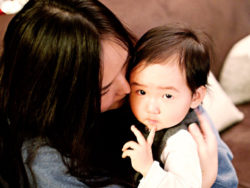
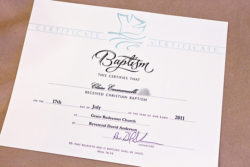
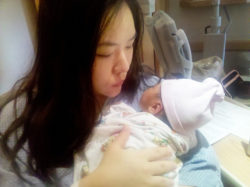


 I like books, gadgets, spicy food, and art. I dislike shopping, hot weather, and the laws of entropy. Although I am a self-proclaimed computer nerd, I still have a love for handbags and makeup... and I am always teetering on high heels. To learn more about me, visit the
I like books, gadgets, spicy food, and art. I dislike shopping, hot weather, and the laws of entropy. Although I am a self-proclaimed computer nerd, I still have a love for handbags and makeup... and I am always teetering on high heels. To learn more about me, visit the 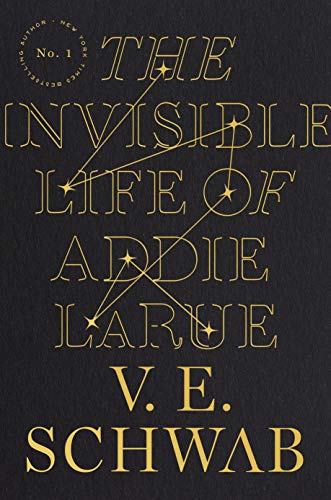
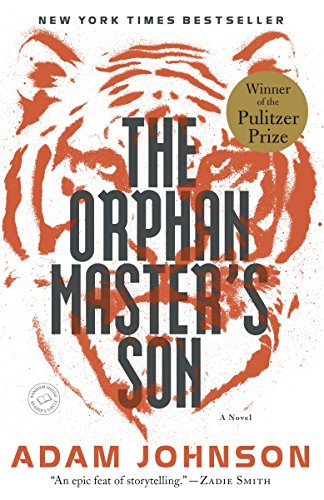

We’ve talked about this, and for us it’s been easy to take it out of the public vs. private discussion because my husband went to parochial schools that he says are very inexpensive compared to public schools. I went to public school. It’s still years ahead for us, so we don’t have a final answer.
My experience seems to be somewhat like what you’ve described. The mixture of ideas allowed children to learn differences from other children, not adults, and think of differences on a personal level rather than anonymous generalizations. I don’t think I would say anyone who abandoned their beliefs as a result of attending public school.
I’m not sure how much has changed, but I would choose to send my children to public school for the benefits it offers. My cousins went to Christian schools in the same city as I did, and they seem as well educated but scared of differences. That’s sad, and really against the point these moms you mentioned were making. We should examine our beliefs and hold strong to them, able to explain them, when faced with difference, not cower when faced with a difference incorrectly perceived as a threat.
I grew up in a very strict Christian environment at home. I went to church each weekend and learned how I was supposed to act. In school, I was very proud of who I was and what I believed – not letting other beliefs weaken my own beliefs. A lesson people forget is that by hearing beliefs different than your own, it doesn’t always sway you to their thinking, but it can be a tool to help you know why you believe what you do, as well as teach you what you don’t believe.
More important than school, however, is what you teach your child at home. While I was taught Christian beliefs and morals, I wasn’t taught much more than that. I was taught that I shouldn’t be part of the world around me, and I was not given choices in my life. My parents ruled with an iron fist, and what they called "sheltering" was nothing more than total control. When I was able to leave for college, I ran hard and fast in the opposite direction from what I experienced with my family. I also learned that I lacked much of the social and life skills needed – which left me in a few bad situations (followed by lectures from my family that included how only they knew what was best for me). Even as an adult, they feel the need to try and control me and my life – even continuing the lectures, and trying to control my life.
Did I still love God? Yes. Do I still love God and maintain a relationship with him? Yes. However, I don’t love religion, and I don’t agree with "ruling" over your family and making them fear God – they should love God. Despite the need to live "apart" from the world as Christians, we nevertheless must still live in the world with non-Christians. We must do it on our own terms and teach our children how to be in the world without being a part of it. When you smother a light, it goes out. When you encourage a light, you never know who you will light by showing your own.
While, yes, deciding where to send your child to school is important, remember that it’s what your child learns from home that will be the basis of how they build their own life.
I started out in public school and then was homeschooled. My husband did all three public, homeschool, private school. We’ve found that the different types of schooling met our needs at the time. I was in middle school when I became homeschooled and it was a good thing for me. In high school I became bored with homeschooling a bit and enrolled in a lot of activities and community college for things that are hard to learn at home like German and Chemistry. I really liked the experience.
Based on my husband’s experience, he feels the same way I do. We’re going to evaluate what type of schooling our one year old son needs when he gets there. Though we are thinking of homeschooling him for kindergarten, because in MD we have all day kindergarten and we’re not big fans of that.
I agree with you on public schools–they have a lot of benefits to them. And frankly, it seemed to me like all the "problem" girls in college (at least, my college) were the ones who went to Christian high schools. They went buck wild in college. I tend to stereotype that private high schools can have a worse influence. If your public school system is good, and you education your child about the dangers of things at home, i think that’s a wonderful thing. Kids aren’t stupid and sheltering them from it isn’t necessarily going to prevent things from happening or those outside influences from occurring. I’d rather deal with those things when they’re young than when they’re older….and more rebellious.
Plus, i went to a public high school and it wasn’t like sex drugs and alcohol were rampant. It’s all about the friends you make. And those kids at Christian schools aren’t necessarily better….i knew some girls sent there for punishment, to try to straighten up. I think you’ll run into situations and issues you’ll need to address at both types of schools.
Since I’m still in the school system (I’ll start my third year of college in the fall) I guess I can shed some light on my experiences.
I also grew up in a Christian household, but attended public school for all of my education, save for middle school. My parents were very involved with my (and my brother’s) schooling. After I finished elementary school, and the local middle school didn’t have the best reputation (which my Mom was able to get the real story on; we had a close friend who worked in the administrative office as a secretary — small town!) my brother and I were homeschooled for 6 through 8th grade. We were able to learn history through the eyes of the Bible, while still using the same history and science books that our public school counterparts were using.
I returned to public school in high school, and ended up making some of my closest and most encouraging Christian friends. In the same way that high school has negative cliques – goths, popular kids, geeks (I was one of these too!) – there are also opportunities for sharing your faith and hanging out with people of similar beliefs in a healthy environment. And I agree that the opportunities to share your faith are also important and unique to high school! (The opportunity to share in college is phenomenal. I love it, and have grown in my relationship with Christ exponentially since I started college.)
I don’t want to stereotype either direction, but I have friends from private Christian schools who are very naive about how the world will treat them once they leave home. So I will probably send my kids to public school, if there is a well rated school close to our home, but it’s most definitely a personal choice that depends on each situation.
Hope that helps someone! 🙂
My husband and I were both homeschooled, and we really loved the experience, so I think that’s probably the main reason we want to homeschool our children. Our parents made the choice out of concern for quality of education and frequent moving (him) and really crappy public schools in our district and not being able to afford private (me).
There were definitely downsides to being homeschooled — I’ve noticed my husband and his siblings tend to be VERY insular and don’t really seek out friends because they have each other, with kind of an attitude of "Well, who else would we need?" I’d like to have more friends, but I’m very shy and not very confident to go make friends (although I could have been a wallflower in a group school setting as well). However, one thing that really benefitted us both was a freer learning environment, so we (through our parents) could have more control over our learning pace (I LOVED to learn and wanted to do everything fast), and we had more control over the environment and way in which we learned (my husband could not sit still as a small child, so he was allowed to dance around and do gymnastics while his mom read to him, but when she stopped and asked him what she said he could repeat it back word for word).
I do worry about the aspect of Christianity in going to public schools, and the idea of having to be a witness at such a young age, but as much as God loves children, I don’t think He ever promised little believers that they somehow should have an easier time than adult believers because of their age.
Maybe if I had a different background, I’d send my kids to public school (if the schools were good), but I’m sticking with what I know. Heck, I’d just embarress my kid because I’d be the mom always forgetting to do this or bring that or being there at the completely wrong time because I’ve never, ever been to public school. 🙂
I was homeschooled until 8th grade, then went to an all girls private high school, then a private Christian university, and now a private secular grad school… I have never been to public school!
For my parents, the question of private vs. public wasn’t as much about religion as it was academics… as a former teacher at both public and private schools, my mom knew that a public school wasn’t enough of an academic challenge for her kids, and she felt she could better control our curriculum if she homeschooled us. I absolutely loved homeschooling, and it’s definitely something I’d love to do with our future children, depending on circumstances.
I wouldn’t have a problem with public school for my kids, particularly if finances were a concern… however, you better believe I’d pull them out at the first lazy/ineffective teacher I came across. (I feel like I can say that since I come from teacher parents and will be a teacher in January, lol…) You only get one chance at an education, and I think it’s vital to have a good preparation.
Now, the issue of same gender schools… that is possibly just as heated a discussion as secular vs. religious schools! I LOVED my all girls school, and felt that it truly made me who I am today. I can honestly see a difference between coed peers and peers who attended same sex schools. Making sure my children have some same gender education is a priority for me, and I have great hopes for the number of public same gender academies popping up.
I went to Catholic school from kindergarten until 3rd grade; in 4th grade I started at public school when my family moved to a better school district. I think that having religion involved in school during those early childhood years was pretty helpful in solidifying my faith; I learned quite a lot about how to pray as a child and had a good religious background for when I made my first communion (age 7 for most Catholics). Personally, I liked going to Catholic school as a young child but would not have wanted to continue much beyond that.
Attending public school really helped strengthen my faith overall as I was exposed to new students with different religious backgrounds. I became close friends with girls with Hindu, Buddhist, and non-religious backgrounds, and we had some fantastic religious conversations about the similarities and differences of our beliefs. Later in college this expanded to Muslim and atheist friends; again, discussing religion with friends of different beliefs only helped me to figure out my own faith ~ and importantly, helped me to be understanding and respectful of those with differing faiths. Also, as you mentioned, it is important to learn how to be an ambassador for one’s own faith, by being able to share it with others. I attended CCD (kinda like the Catholic version of Sunday school) classes and youth group, and one of my friends with Buddhist parents who didn’t really practice any religion started expressing interest in the Christian faith after some of our conversations in high school. She started coming to youth group with me and another mutual friend, and this was a great experience for all of us ~ showing someone our faith and seeing her grow that way. Later in college she did convert to Christianity (not Catholic, but of course I’m still very happy for her!), and honestly – it makes me feel pretty good to know that I had a part in that, early on. Seeing someone start to share your own beliefs is an amazing way to strengthen your own faith!
Anyway ~ sorry this is so long ~ the main point is that I think it’s important to lay a solid religious background with kids early on, at home, by attending church services with family, maybe Sunday school, and maybe Christian school as well. But I think it’s just as important for kids to be exposed to others with differing beliefs so that they can really explore their own sense of faith.
Atheism’s firm foundation on a desire for evidence, and not belief, is consistent with rational thinking and plain common sense. We use evidence as the basis for our scientific, medical and legal work. On the other hand, religions are a set of beliefs, and many people follow them regardless of what evidence or rational thinking might suggest is a better option. This is why most mainstream religions need to indoctrinate children when they are young, before their critical thinking skills have been fully developed.
Send your children to public school for their own sake, it will devellop their critical mind and protect them of christian lack of morality and humanity.
@Daniel — I’d love to know why you think Christianity is devoid of morality and humanity?
How can you get any morality from a violent murderous tyrant?
The attitude of chritian toward gay, women and non believer is deplorable.
I m European and religion is loosing his power, countless people realise that you cannot base their values on a lie( with a bit of comon sense one come easily to the conclusion that Jesus is an allegory and did not exist)
Teaching these violent myth to children is child abuse( something that christian know well)
Secular student have a 10% superior IQ and are more tolerant and happy.
These bronze age value have no place in our school and society.
@Daniel — I’m sorry to hear that you feel that way (although I’m not sure I agree with your claim that secular students have 10% high IQ…do you have unbiased studies to back that up?). I will pray for you.
I found that article and found it interesting
Articles by Kanazawa,
Why Liberals and Atheists Are More Intelligent
Satoshi Kanazawa
London School of Economics and Political Science
Correspondence: Department of Management, London School of Economics and Political Science, Houghton Street, London WC2A 2AE, United Kingdom; S.Kanazawa@lse.ac.uk.
The origin of values and preferences is an unresolved theoretical question in behavioral and social sciences. The Savanna-IQ Interaction Hypothesis, derived from the Savanna Principle and a theory of the evolution of general intelligence, suggests that more intelligent individuals may be more likely to acquire and espouse evolutionarily novel values and preferences (such as liberalism and atheism and, for men, sexual exclusivity) than less intelligent individuals, but that general intelligence may have no effect on the acquisition and espousal of evolutionarily familiar values (for children, marriage, family, and friends). The analyses of the National Longitudinal Study of Adolescent Health (Study 1) and the General Social Surveys (Study 2) show that adolescent and adult intelligence significantly increases adult liberalism, atheism, and men’s (but not women’s) value on sexual exclusivity.
Depend what you want for your children.
I do not welcome your prayer, find a better use of your time.
I attended private Christian schools until I went to college. I currently teach special education in a public school. Studies show that there is no difference in public and private schools in terms of success as long as certain factors are equal so whatever choice anyone makes for their child will be fine. Because of this I had always planned on sending my children to public school assuming we lived in a good district. However my husband, who also attended private Christian schools, and I have discussed the other merits of Christian schools that a public school just doesn’t offer like the strict rules and structure. Small things like uniforms and zero tolerance policies for drugs, alcohol, and violence are definitely something a private school offers that public schools do not as they have a legal obligation to education all children.
A recent article in the Journal of Religion and Society points out that religion is correlated to the significant social difficulties that we can see in America.
"In general, higher rates of belief in and worship of a creator correlate with higher rates of homicide, juvenile and early adult mortality, STD infection rates, teen pregnancy, and abortion in the prosperous democracies. The most theistic prosperous democracy, the U.S., is exceptional, but not in the manner Franklin predicted. The United States is almost always the most dysfunctional of the developed democracies, sometimes spectacularly so, and almost always scores poorly. The view of the U.S. as a “shining city on the hill” to the rest of the world is falsified when it comes to basic measures of societal health".
IQ and the Origins of Religions
Richard Nisbett makes a compelling case in Intelligence and How to Get It that IQ is much less heritable than we once thought and that environmental factors like culture and schooling play a much larger role in making people smart. He estimates that the effects of family, nutrition, schooling, home environment, and surrounding culture could be as large as 18 points of IQ. The Flynn effect is another important recent IQ phenomena. IQ tests are regularly renormalized to keep the average IQ score at 100. Flynn has demonstrated that over that period IQs have been increasing by about 3 points a decade. That is all to say that we are getting smarter, and it’s not because humans are changing that much. It’s because our environments are changing. We have access to huge amounts of sophisticated information now, we have better nutrition, we have better healthcare, affluence has increased, education has improved and so on. But we are getting smarter in two ways: we have more information and better access to it now than we once did—high school kids are doing experiments with recombinant DNA in class. But the environment is actually raising our intelligence independent of increased informational knowledge. The IQ increases show that we can solve problems, reason critically, and employ better cognitive strategies now than we used to. Nisbett quotes Linda Gottfredson’s definition of intelligence: “a very general mental capacity that, among other things, involves the ability to reason, plan, solve problems, think abstractly, comprehend complex ideas, learn quickly and learn from experience. It is not merely book learning, a narrow academic skill, or test-taking smarts. Rather it reflects a broader and deeper capability for comprehending our surroundings—“catching on,” “making sense” of things, or “figuring out” what to do.”
What are the implications of the rise in IQs if we project it backwards in time? It means that the average person plucked off of the street 300 or 500 or 1,000 years ago would be what would be considered developmentally disabled today. Their average IQ would have been a 75 or 65 or worse. The reason is that culture, education and other external factors play such a large role, it turns out, in making it possible for people to actualize the potential they have for being smart. And only in the last 50-100 years have we brought the level of education and affluence up high enough for enough people to really start seeing the effects.
These points raise serious issues for all of the historically based religions. The people who founded the world’s religions, on average, would have had distinctly worse reasoning abilities, less ability to comprehend complex ideas, and worse comprehension of their surroundings. There would have been outliers, of course. Newton, Copernicus, Aristotle, and Kant would have stood out intellectually from their peers, and they would most likely still stand out among the modern elevated standards. But what about average people? The people who became believers in the major religious movements? If there were people 2,000 years ago who thought they saw a ghost, or thought they saw miraculous, supernatural events, we might not blame them for their conclusions. They can’t be faulted for not knowing what we know and not having the IQ that we have. But an assumption in our religious culture seems to be that if those people were satisfied that Jesus was resurrected or that Mohamed was Allah’s prophet, then we should be satisfied too. The original believers would have been sufficiently thoughtful, reflective, objective, critical, and smart to figure out the truth, so we can trust their conclusions. But as soon as we bring the assumption out that way, it is obvious what a mistake it is. Would you accept the conclusions about the most important questions facing humanity without questions from someone today with an IQ of 60? Do you think they would be the most reliable, thoughtful, objective source of information you could find? Compared to you, they lacked an enormous amount of relevant information and they were equipped with reasoning skills that were far worse.
The suggestion here is outrageous and offensive, I know. But what other conclusion can we see? If we know that IQ is highly responsive to environmental factors and that those factors were worse in previous eras of history, then we know that IQs were lower–significantly lower–in those eras. And if we are getting our information about alleged supernatural events like miracles, invisible gods with magical powers, people coming back from the dead, and so on from these same people, then surely the fact about their mental capacities is relevant to our assessment of their reliability. We’ve got to consider the source, and we shouldn’t make the mistake of assuming that they were just like us in all of the epistemically relevant ways. What would you think if you found out that your doctor or someone else entrusted with very important matters in your life had a 60 IQ? So why would you be willing to entrust the 1st century believers to provide you with answers to the ultimate questions about God, reality, and the place of humanity in the cosmos?
It’s a bit long sorry
@Daniel — You are obviously very passionate about this and have clearly made up your mind so I won’t argue with you. Even the Bible says that it is useless to argue against those whose hearts are already hardened against God. Personally I would rather that my unborn daughter has an IQ of 80 and have the love of God in her heart, than be a genius and/or be very successful (or at least be acknowledged as a success by the secular world) but not be a Christian. So like you said, it depends on what you want for your children.
P.S. — I had already prayed for you when you wrote that you do not welcome my prayer. I will continue to pray for you, and others like you. I do not think praying is a waste of time at all, even when it is for those who do not appreciate it.
Your bible have 14800 differences with the original text and therefor is a fraud and quoting it is laughable.
Saying that about your unborn child is monstruous, you prefer a retarded child who would accept your fantasy.
It is simply disgusting.
You ask why I felt that Christian had no morality; you answer the question yourself.
You are delluded and dangerous for your futur baby.
French is my first language so forgive my grammar or my spelling.
Not for Daniel, but for those who might read what he wrote and find it compelling: haven’t we all heard for years that IQ is not an adequate standard with which to measure intelligence? And even so, is it reasonable mathematics to simply project a 3 point IQ increase per decade backwards over the millenia of human development, regardless of the way in which technology has grown over the years? Neither of those lines can be a smooth incline — there have been years and years of plateaus, sharp dips, sharp increases, etc. We are living at the tail end of an insanely fast period of technological development, which is relatively short in terms of all of human history. This theory seems preposterous to me, and simply a new-fangled reititeration of chronological snobbery and self-righteous superiority over our "caveman" ancestors.
For the record, as a homeschooled, conservative evangelical Christian, I’ve tested at a 130 IQ multiple times (whatever IQ is worth), gotten a perfect score on the verbal portion of my SAT, and graduated college Summa Cum Laude. My husband, who as I mentioned before is of similar background, is also highly intelligent and is pursuing his PhD in metaphysics and epistemology, and my father-in-law is a conservative evangelical Christian with his PhD in psychology and counselling, as well as an MDiv.
@Daniel — I will say again that I do not wish to argue with you. I can recommend various books, references, etc that will explain my faith a lot better than I ever can, so please let me know if you want a list. You are so clearly against Christianity that you would jump in on a blog post (of my own opinions) of a complete stranger to insult my religion, continue to check back for responses, and call me "monstruous" and label me a danger to my baby. You are entitled to your opinions and I will not block you or delete your comments. However, I just want you to know that this will be the last time I will respond to your comments because as there is no persuading you otherwise, nothing that you will say will cast even the slightest dent in my faith.
I am glad that I at least gave you something to think about. And I am actually happy to have received your comments, because it further reaffirms my belief that only God and the name of Jesus have the power to incite so much anger. I will continue to pray for you.
Not all christian are idiots. Thanks Darwin it would be boring to debate.
The fact is that religion is a plague and teaching it to kids is child abuse.
Especially christianity should cease to exist because it has been proven with a bit of comon sense that the base of your faith never existed.
Put your brain to better use.
Anger? I m having fun, I m not angry at all.
PS make some research; jesus never existed, you are intelligent look by youself.
You just have to google it.
No christ no christianity
we sincerely wish you the best for the birth of your baby
Wow, throwing insults, and quite severe ones I might add…. that is “fun” for you? Shall we talk about morals and intellect? No point in continuing your negativity. There is research regarding following the history of the crucifixion of Jesus, which leans toward proving Jesus really did die. The Bible, if nothing else to you, is actually a historical document, and there is archeological evidence, and other historians to back it up. You are apparently very intelligent, so I’m sure you could find this information, if only you truly had the desire to. Good luck in life and keep you chin up.
@MrsW — I thank you for using yourself and your family as examples of highly intelligent Christians. I myself have tested at an IQ of 138, and know plenty of well-educated and intelligent Christians who are well-respected by both the secular and Christian communities. I have read that recently, many Christians choose not to go into (or are ostracized from) the academic and scientific fields because these fields tend to give Christians a hard time. I hope that this is not the case with your family, and I will keep you guys in my prayers.
wow… I’m a bit sad this evolved into the Daniel show in the comments… especially because I agreed (for the most part) with his first comment… though disagree with his approach and venom in his following comments. Though raised in a Catholic household, I was also sent to public school. The schools in my childhood neighborhood are some of the best in the country, and the private schools in the area weren’t significantly better to justify a long journey.
I started questioning my faith, religion in general and especially Catholicism (because it was *our* religion) from an early age.
Questioning, reasoning, and evaluating our beliefs is crucial and important to becoming a well rounded human being. If, after questioning, reasoning, and evaluating their beliefs my (non existent) child wanted to be a christian, or follow another type of religion I would be surprised, but not opposed to it. I mean, unless it was a cult like group – beyond the typical cult-esque qualities of most popular religions.
I think I would have this type of conversation that this blog outlines http://reasonfreely.wordpress.com/2010/05/17/talking-about-freethought/ I think it’s a great approach leading to conversation, and not personal attacks as so many religious/non religious conversations tend to do. Daniel, I think it might benefit you to read this post as well.
Out of eight of my closet friends at university, three were Christians; the remainder of our group were not religious (like myself) or unsure of what they believed in. We all studied Chemistry and my friends were able to study without receiving any grief from any lecturers or any of our other classmates.
As I previously said I am not religious but i find it horrible that Christians cannot enter academia or scientific because of their beliefs. Every person is unique and has the right to believe whatever they please and work/study wherever they wish to.
I am astonished that some people react so violently to GeekInHeels sharing her beliefs! Its HER blog and she can write whatever she damn well pleases!
(I am from Northern Ireland and have seen what happens when people use religion as an excuse to persecute people of different faiths. In this day and age people should be able to believe what they want or to not believe if that if what suits them )
It was not venoumous but the time of"live and let live" is over.
19 century free thinker mentality won’t help us getting rid of these old superstition.
It is not hate, it is bluntness, it is in your face and it s working.
I m Belgian and we are close to put the catholic church in the draw of history.
Religion must die for humanity to prosper.
Wow. Some people’s children eh? 🙂
My dad is a pastor and I grew up in a very Christian household. Although my beliefs were given to me by my parents at a young age, I was encouraged to question them, to determine is something was "good theology" before accepting it, and I was taught to think critically.
I went to private schools until college, when I went to a Christian university. I had a hard time being a Christian university because so many of the people were so close-minded and had grown up going to Christian schools, being in church, and being surrounded by other Christians. They really didn’t seem to know how to think for themselves, and many were hateful to homosexuals and women. It was really sad to see.
In reality, there was more good than bad. I still think I’ll be sending my kids to public schools their whole life, and hoping they go to public universities. I had to defend my beliefs from a young age but that made me really THINK about what I believe; I learned how to stick up for myself, and I learned others’ beliefs, and that’s a good thing. I was very conservative when I was younger and I am now much more liberal as far as my beliefs, economics, politics and worldview. I am still a Christian, I just consider myself a bit more progressive than some of the people I went to school with; it does bother me at times that we all say we’re "christians" when it means so many different things. I don’t want to be in the same group as Tim LaHaye, George Bush, Pat Robertson or Jerry Falwell. I think they do more damage than good.